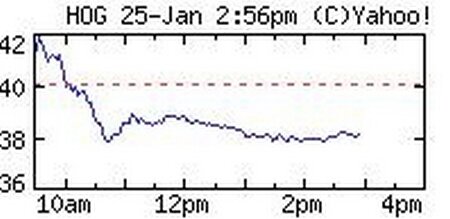The Rise of Decline
Lee on Jan 04 2009 | Filed under: Domestic Politics, History
You know you’re in an American recession when British observers start reflecting on the inevitability of American decline, and volunteering their allegedly privileged perspective gained from the fall of the British Empire (Mark Steyn, as always, excepted). So it is that Matthew Parris joins an old tradition and writes this of the incoming Obama administration:
Though he may not yet know it, the role for which the US President-elect has been chosen is the management of national decline.
(The Times)
It should still be within our memory of course, that it was widely believed that Richard Nixon held this dubious distinction in 1968. Indeed, Nixon himself believed it, and his assessment that the United States had passed into decline informed almost all of his foreign policies. Mr. Parris’ countryman, the historian and strategist Paul Kennedy, had thought even more seriously on this issue and concluded in 1987 that the apex of American power had been reached in the 1970s, after which the United States had passed into another ultimately nonexistent long-term decline.
Retrospectively, this is all rather embarrassing. The United States is naturally vastly more powerful today than it was in the 1960s or 1970s, and the structure which enabled those gains commercially, socially and politically, remains unassailed. Given past experience, it’s entirely likely in coming years that we will feel similarly embarrassed by the current declinism.
But Mr. Parris is obliquely correct on one matter though:
Mr Obama will have to find a way of being honest with Americans about their country’s fall from predominance. Reading, as I often do, the furiously chauvinistic online reaction from US citizens to any suggestion that their country can be beaten at anything, I quail for him.
(The Times)
The experience of Nixon –pursuing policies to cushion the fall of an America which was just beginning to scale new heights– might suggest that it doesn’t really matter what Obama thinks. But if Americans themselves genuinely started to believe in their impending decline, and shelved their ambitions in favor of the crowded retirement home of great powers, they could actualize the prediction.
As with American greatness in light of her continental scale, vast and growing labor force, enormous capital resources and limitless dreams, a prophecy of American decline is largely contingent on whether or not Americans can be persuaded to self-fulfill it. If they cannot, that faint light on the horizon is another dawn, not an inevitable sunset. After all, the retirement home for the false futurists of American decline is an even more crowded house.
Sphere: Related Content.JPG)
 As I
As I 
